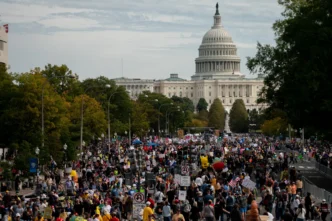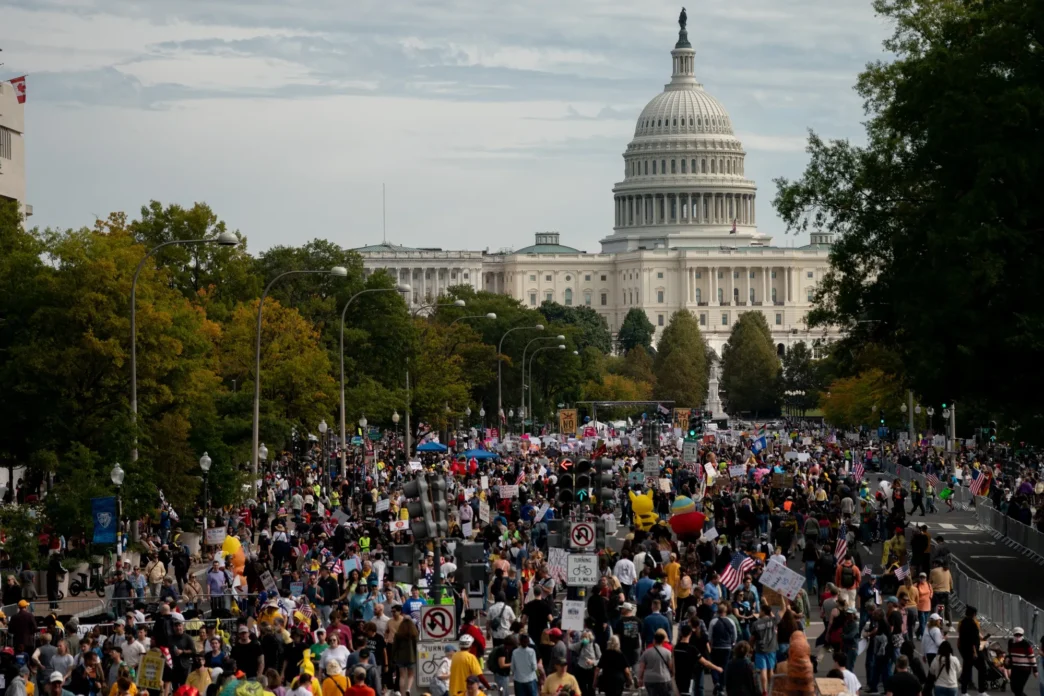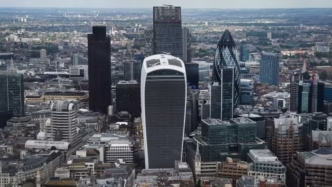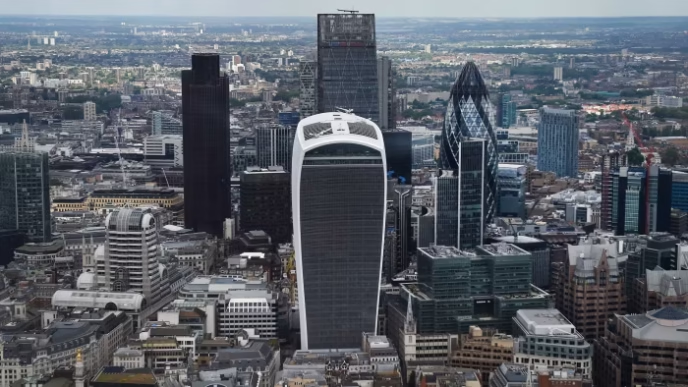Across the United States, thousands of protesters gathered this weekend to participate in “No Kings” demonstrations, a grassroots movement explicitly opposing President Donald Trump and warning against what participants describe as the rise of authoritarian tendencies in American politics. From New York to Los Angeles, rallies featured chants, signs, and speeches emphasizing democracy, accountability, and civic engagement, signaling a growing segment of Americans who view Trump’s continued influence as a threat to constitutional norms.
Organizers described the events as nonpartisan but purpose-driven, aiming to educate voters, pressure lawmakers, and challenge the political rhetoric they say seeks to centralize power and undermine democratic institutions.
A Nationwide Wave of Protest
The “No Kings” events occurred simultaneously in more than 30 cities, with participation estimates ranging from hundreds in smaller towns to several thousand in major metropolitan areas. Demonstrations included marches, panel discussions, art installations, and civic workshops designed to engage young voters and communities historically underrepresented in political discourse.
Key highlights from major cities included:
- New York City: Protesters gathered outside Trump Tower with signs reading “Democracy, Not Dynasty” and “No Kings in America,” calling for civic accountability and fair elections.
- Los Angeles: Marchers paraded along Wilshire Boulevard, emphasizing voter registration and engagement among younger demographics.
- Chicago: A panel discussion accompanied the protest, featuring academics and activists who examined the historical risks of concentrated political power in democratic societies.
- Washington, D.C.: Demonstrators staged a symbolic “coronation” ceremony for democracy, highlighting the contrast between public governance and authoritarian impulses.
Messaging and Motivations
At the heart of the “No Kings” movement is the notion that Trump represents a challenge to democratic norms, whether through repeated election-related disputes, attacks on independent institutions, or appeals to loyalty over rule of law. Protest signs and speeches repeatedly invoked phrases like:
- “Checks and balances, not coronation”
- “Accountability over power”
- “No monarchy in the White House”
Organizers emphasized that while Trump is the current focus, the movement also seeks to educate the public about broader risks of authoritarianism, including:
- Concentration of political power
- Erosion of independent judicial and legislative oversight
- Threats to press freedom
- Marginalization of minority voices in governance
“This isn’t just about Trump,” said one organizer in Boston. “It’s about defending the principles that make democracy resilient. If we ignore warning signs, we risk losing the balance that keeps government accountable.”
Public Response and Political Reactions
Responses to the demonstrations were polarized. Supporters praised the movement for raising awareness of democratic accountability and encouraging civic participation, particularly among younger voters. Critics accused the protests of being partisan theatrics, arguing that the events unfairly singled out Trump while ignoring other political leaders who exercise influence in ways the protesters might also contest.
Local authorities reported peaceful protests overall, with police overseeing marches but making few interventions. Social media coverage amplified the movement, with the hashtag #NoKings trending in multiple states, especially on platforms popular with activists under 35.
Historical Context and Symbolism
The “No Kings” name evokes a historical parallel to anti-monarchical sentiments in the American Revolution, reflecting the movement’s desire to protect constitutional checks and balances. Demonstrators frequently cited the Founding Fathers’ warnings against concentrated executive power as inspiration for modern activism.
Political scientists observing the events note that symbolic protests like these often correlate with higher voter registration and turnout, particularly in midterm and primary elections. By framing their message around democracy rather than party politics, organizers hope to influence policy debates and civic behavior without explicitly endorsing candidates.
Broader Implications
Analysts suggest that the proliferation of “No Kings” demonstrations could have lasting effects on U.S. political culture:
- Increased voter mobilization, especially among younger and urban populations
- Pressure on politicians to clarify stances on executive power and democratic norms
- A shift in public discourse toward institutional checks and civic responsibility rather than personality-driven politics
Some experts caution, however, that such movements also risk polarizing debate if interpreted as attacks on individual politicians rather than systemic reform. The success of the movement may hinge on its ability to sustain engagement beyond headline events, translating symbolic protests into policy initiatives, voter education programs, and sustained civic participation.
Looking Ahead
As the 2026 midterm elections approach, the “No Kings” movement plans additional rallies, workshops, and digital campaigns. Organizers emphasize that public vigilance and civic engagement are essential to maintaining democratic resilience.
“We don’t want monarchy in any form,” said a protest leader in Philadelphia. “Whether through elections, appointments, or political influence, power must remain accountable to the people. That’s what democracy is about—and that’s what we’re defending.”
With nationwide attention and growing participation, the “No Kings” movement represents more than a reaction to one political figure—it is a statement of intent to uphold democratic principles in a time of increasing polarization and institutional tension.
















